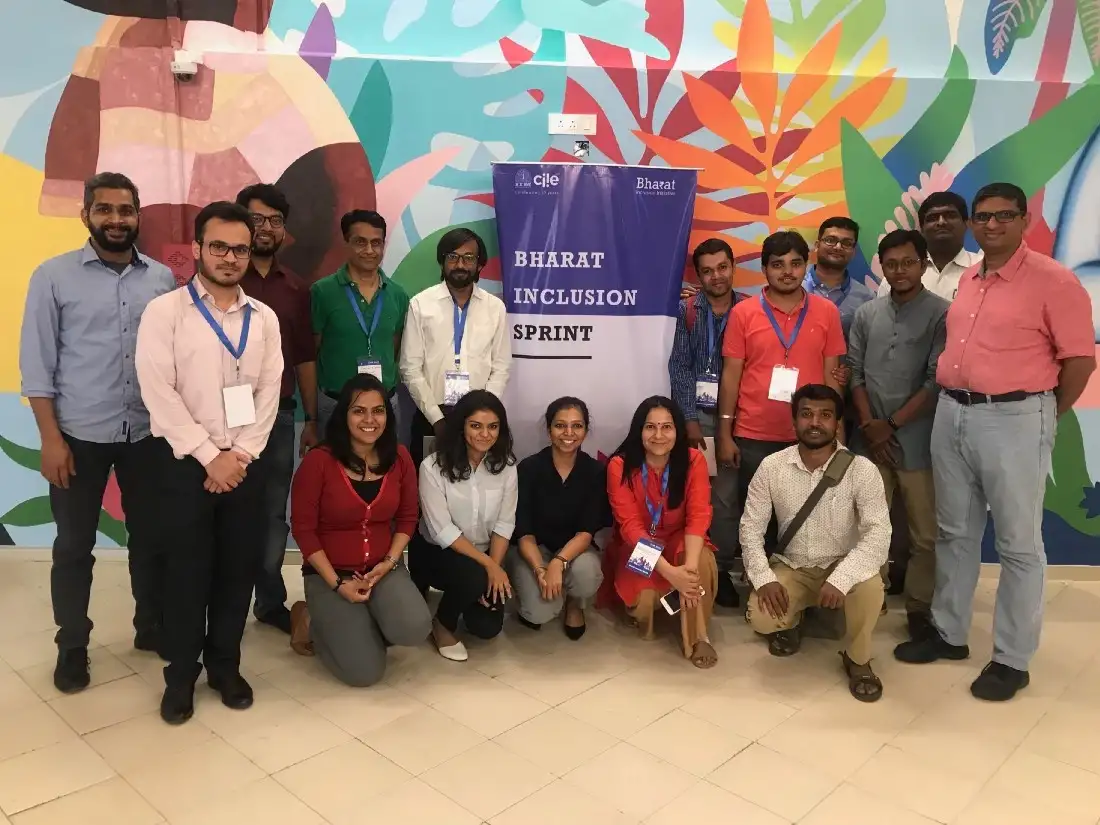
A year ago, the Bharat Inclusion Initiative launched one of its first pan-India programs Sprint, with an objective to connect with some of the best startups in fintech and livelihood space. It is an awareness drive on different tools available at their disposal as they go about solving some of the toughest Bharat problems. We have conducted Sprints across 9 cities and interacted with more than 200 startups in the inclusion space. Our latest Sprint at Bengaluru, which was an all day affair focused on IndiaStack and witnessed participation from startups in Fintech, Cleantech and Livelihood sectors.
The day started bright and early with Praveen Hari (Founder, Jit Finco) elaborating on the importance of customer segment in the startup journey. He defended a collaborative approach in building and understanding a product that solves the problems of the customer base. He encouraged to build a product that penetrates deeper into the lives of customers over it’s diluted version to increase the number of customers. “Building ‘aha’ moments in your customer journey is very important.” he said.
For founders, constant reinvention and relearning is the way forward. Hitting this keynote, Vinay Kesari (General Counsel, Setu) hosted the next session addressing the purpose of IndiaStack and discussing critical regulatory updates around it. “We need the ecosystem to make it easier for startups to focus on the actual product or service they want to build, as opposed to worrying about how to work with financial institutions,” he emphasised, highlighting the importance of different regulators coming together to create a single sandbox. His session triggered interesting conversations around the identification of API based user verification services, implementation challenges of IndiaStack, legal KYC solutions and optimal eSign and payment methods for the low-and-middle-income segment.
Important updates from his session included:
Account Aggregator, an RBI initiative to unlock financial data via APIs using consent architecture
New features added in UPI 2.0; One-time mandates & overdraft
New eSign 3.1 spec delinks the KYC process and subsequent auth from Aadhaar
In the age of open banking, it is highly likely that a customer would interact more with an intermediate service provider than the underlying regulated entity. Thus it is imperative for these service providers to have a say in matters that affect their interest. Hence the next session featured Saranya Gopinath (Co-founder, DICE) who presented an outstanding example of how DICE, an industry body of startups works on creating collaborative industry and regulator relationships. She talks about four founding pillars of DICE — research, dialogue, reach out, feedback which play an essential role in connecting regulators to various industry bodies.
‘In the early stages of a startup, focusing on “execution” will put you out of business. Instead, you need a “learning and discovery” process so you can get the company to the point where you know what to execute.’ — The Four Steps to the Epiphany, Steven Blank.
Designing use-cases that use customer personas and journey maps exposes many potential roadblocks even before executing the product development plan. In the last session of the day, Srikanth Chunduri (Founder, Framewirk) facilitated the use-case identification and simulation session to help startups understand the importance of their customer personas and journey mapping. Along with the Bharat Inclusion Team, he briefly touched upon certain use-cases: Wealth management — eKYC, Digital Chit Funds, Digital verified resume — Digilocker, Insurance and Health access to Blue Collar workers. The use-cases helped startups identify various challenges in mapping customer requirements and develop a systematic approach to use this in their business.
But then we know the difference between ‘knowing’ and ‘doing’. So it was time for the startups to get started with structuring their own use-cases: From persona to problem and the solution, the focus was on simulating the product journey along with the customer. There were intense discussions, peer feedback and valuable inputs — when you have like minded souls that share similar passions, the experience can be quite rewarding.
The Sprints help to create a like-minded community of entrepreneurs, influencers and stakeholders to initiate free-flow of knowledge and support. We encourage startups and entrepreneurs in the fintech and inclusion space to stay connected and keep us updated on the support they need in building inclusive solutions for Bharat.
